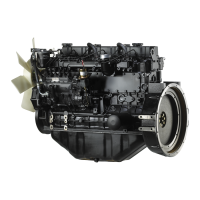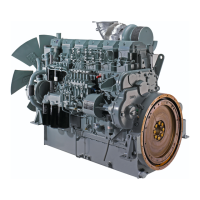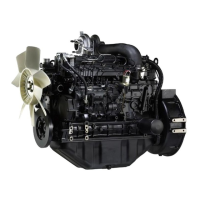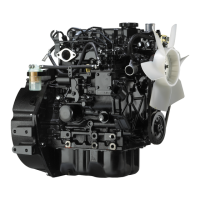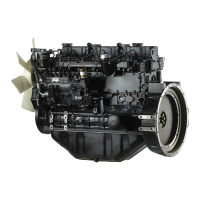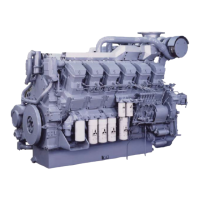VIII
FOREWORD
Battery
Be Careful with Battery
Never use flames or generate
sparks near the battery. The bat-
tery gives off highly flammable
hydrogen gas and oxygen gas.
Any flame or spark near a battery
may cause an explosion.
Do not use the battery if its fluid level is below the
lower limit line. Long use of the battery may result in
an explosion.
Do not short the battery terminals with a tool or other
metal object.
When disconnecting battery cables, always remove
first from negative (-) terminal first. When reconnect-
ing the cables, always connect first to the positive
(+) terminal.
Charge the battery in a well-ventilated area, with all
battery plugs removed.
Make sure the cable clamps are securely fastened to
the battery terminals. A loose terminal can cause
sparks that may result in an explosion.
Before servicing electrical components or conducting
electric welding, set the battery switch to the [Open/
OFF] position or disconnect the cable from the nega-
tive (-) battery terminal to cut off the electrical cur-
rent.
Electrolyte (battery fluid) contains dilute sulfuric acid.
Careless handling of the battery may lead to the loss
of sight and/or skin burns. Also, do not swallow bat-
tery fluid.
Wear protective goggles and rubber gloves when
working with the battery (such as adding water or
charging).
If battery electrolyte is spilled onto the skin or cloth-
ing, immediately wash it away with lots of water. Use
soap to clean thoroughly.
Battery fluid can make you blind if splash into your
eyes. Immediately flush it away with plenty of clean
water, and seek immediate medical attention.
If battery fluid is accidentally swallowed, gargle with
plenty of water, then drink lots of water, and seek
immediate medical attention.
When Abnormality Occurs
Do Not Add Coolant Immediately After a
Sudden Stop Due to Overheating
If the engine stops suddenly due to overheating, or
you suddenly stop the engine by any reason, do not
add coolant immediately. If water is added immedi-
ately, parts such as cylinder heads can be damaged
due to the sudden drop of temperature. Add coolant
slowly after the engine becomes cool.
Be Careful to Restart After Abnormal Stop
If the engine stops abnormally, do not restart the
engine immediately. If the engine stops giving an
emergency alert, inspect the engine and correct the
cause of the defect before restarting. If the engine is
kept operating in such a condition, it can result in seri-
ous engine failure.
Immediately Stop the Engine When Engine
Oil Pressure Drops
If the engine oil pressure drops significantly, stop the
engine immediately, and inspect the lubrication sys-
tem to find the cause. Continuous engine operation
with low oil pressure may cause bearings and other
parts to seize.
Stop the Engine Immediately When the Belt
Break
If the belt breaks, stop the engine immediately. Contin-
uous engine operation with the broken belt can cause
the engine to overheat. Steam of boiled coolant may
gush out from the reserve tank or radiator, and results
in burns.
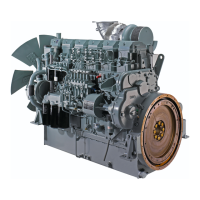
